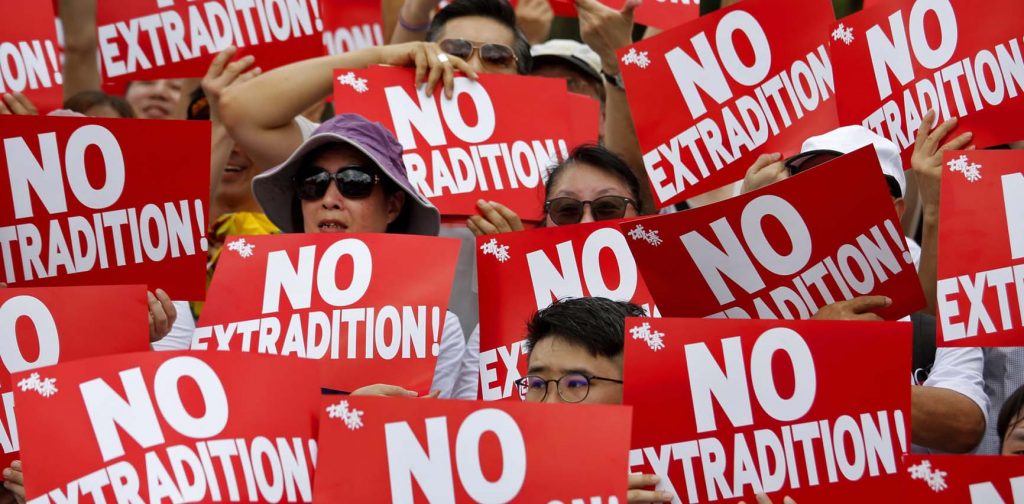Hong Kong: Hong Kong witnessed the largest protest march Sunday since its 1997 handover to China as huge crowds massed against plans to allow extraditions to the mainland, a proposal that has plunged the city’s pro-Beijing leaders into a crisis.
Organisers said more than a million people marched in blazing summer heat through the cramped streets of the financial hub’s main island in a noisy, colourful demonstration calling on the government to scrap its planned extradition law.
The demonstration was by far the biggest the international finance hub has experienced since it was returned to China by Britain – beaten only by a 1.5 million-strong demonstration during colonial rule in 1989 supporting the Tiananmen protesters.
Hong Kong’s pro-Beijing leaders are pushing a bill through the legislature that would allow extraditions to any jurisdiction with which it does not already have a treaty – including mainland China.
But the proposals have sparked an outcry and birthed an opposition that unites a wide cross-section of the city. “If mainland China can arbitrarily extradite some people to the mainland, it would destroy not only our way of living here in Hong Kong, it would also destroy our economy, because many people would leave this place,” protester Tommy Lo told this agency.
For more than six hours Sunday dense crowds snaked their way through the city chanting ‘Scrap the evil law!’ and ‘Oppose China extradition!’, the lines of white-dressed demonstrators stretching for miles.
“There are 1,030,000 people at today’s march protesting against the extradition law ,” an organiser told crowds outside the city’s legislature at the end of the march, prompting a cacophony of cheers and applause as new people arrivals continued to join.
Police, who historically give much lower figures than organisers, put the peak crowd size at 2,40,000 — still their second highest estimate since handover.
Sunday’s protest was easily on par with one in 2003 when an estimated half a million demonstrators forced the government to shelve a deeply unpopular national security law.
But it is unclear if the city’s current leadership will be moved. The city’s appointed leader Carrie Lam has staked her political reputation on the bill passing.
Ignoring the protests could fuel anger or even a return to the unrest of 2014 when pro-democracy protesters took over key intersections of the city for two months. Organisers said Sunday they would ‘upgrade their actions’ if the government did not drop the bill.
But backtracking by Lam might embolden opponents and anger Beijing. Several senior Communist Party leaders in China have voiced support for the bill.
Opposition to the extradition law has come from a wide political and social spectrum.
AFP
